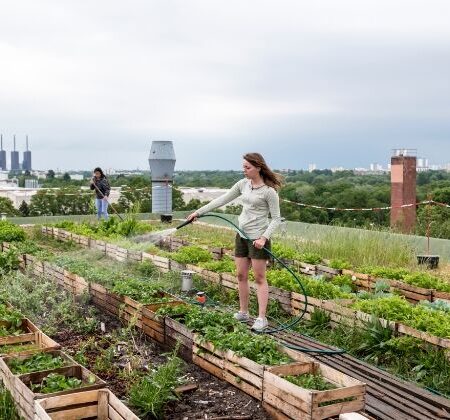Amid the concrete and steel, millennials are cultivating green spaces, transforming urban landscapes into lush, verdant oases. Urban gardening, once a niche hobby, has blossomed into a movement that combines sustainability, community, and a return to nature. Here’s how millennials are leading the charge in turning concrete jungles green.
The Appeal of Urban Gardening
For many millennials, urban gardening offers a respite from the fast-paced, technology-driven world. It’s a chance to reconnect with nature, even in the midst of a city. The appeal lies not only in the act of gardening itself but also in the broader benefits it brings. Fresh, home-grown produce, a reduction in carbon footprints, and a boost to mental health are just a few of the reasons why urban gardening has become so popular.
Creative Uses of Space
One of the most remarkable aspects of urban gardening is the creative use of space. From rooftop gardens and balcony planters to community gardens and vertical wall installations, millennials are finding innovative ways to grow plants in the most unlikely places. These green spaces not only beautify the urban environment but also provide habitats for pollinators and other wildlife.
Building Community
Urban gardening fosters a sense of community among city dwellers. Community gardens, in particular, bring people together, creating a shared space where neighbors can connect, collaborate, and learn from each other. These gardens often serve as hubs for workshops, educational programs, and social events, strengthening the fabric of urban communities.
Sustainability and Self-Sufficiency
Sustainability is a core value for many millennials, and urban gardening aligns perfectly with this ethos. By growing their own food, urban gardeners reduce their reliance on industrial agriculture, cut down on food miles, and minimize packaging waste. Many millennials are also embracing practices like composting and rainwater harvesting, further enhancing their gardens’ sustainability.
Mental Health Benefits
The mental health benefits of gardening are well-documented, and for stressed-out city dwellers, these benefits are especially valuable. Gardening provides a sense of accomplishment, reduces stress, and fosters mindfulness. In a world where mental health issues are increasingly prevalent, urban gardening offers a therapeutic escape from the pressures of modern life.
Technological Integration
While urban gardening provides a break from technology, it also benefits from it. Apps and online platforms offer resources for novice gardeners, from plant identification and care tips to community forums and marketplace connections. Smart gardening devices, like automated watering systems and soil sensors, help urban gardeners optimize their green spaces with minimal effort.
Urban gardening is more than a trend; it’s a movement that reflects the values and aspirations of a generation. Millennials are transforming urban landscapes, creating pockets of green in the most unexpected places. Through creativity, community, and a commitment to sustainability, they are turning concrete jungles into thriving, vibrant ecosystems.


